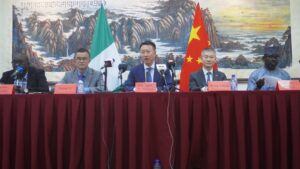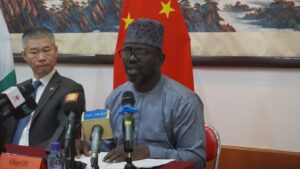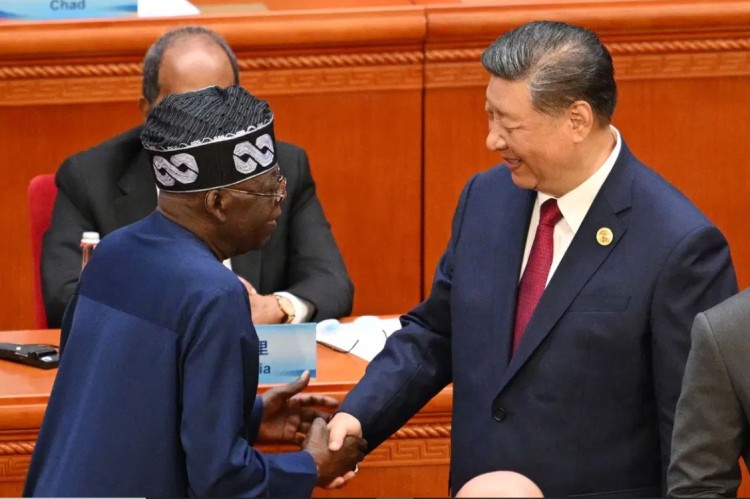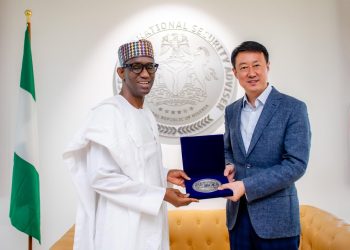Professor Sheriff Ghali Ibrahim, Director of Contemporary Africa-China Research and Head of the Department of Political Science and International Relations at the University of Abuja, has declared that President Bola Tinubu’s recent state visit to China for the 2024 Forum on China-Africa Cooperation (FOCAC) Summit heralds a new era in energy security, infrastructure advancement, and media cooperation for Nigeria.
Professor Ghali made these remarks during a press conference organized by the Chinese Embassy in Abuja on Friday, to assess the outcomes of Tinubu’s visit to the East Asian nation.
During the visit, Nigeria and China signed 13 cooperation documents covering a wide range of areas, including high-quality Belt and Road cooperation planning, the Global Development Initiative, economic growth, and human resource development. The agreements also encompass the application of the Beidou Satellite Navigation System, trade, and media exchanges.

Notably, multiple cooperation agreements were established between relevant government departments, state governments, and Chinese companies in sectors such as energy, security, technology, transportation and ICT Development.
Professor Ghali highlighted that one of the most significant achievements of President Tinubu’s visit was the signing of a memorandum of understanding (MOU) focused on enhancing Nigeria’s energy security, a critical factor for economic growth and investment.
“In a global context where energy sustainability is increasingly critical, this agreement allows Nigeria to explore the peaceful application of nuclear energy. Currently, South Africa is the only African country utilizing nuclear power, but with this new partnership, Nigeria is set to become the second,” he said.

The professor expressed optimism that this partnership with China would facilitate a broader modernization campaign crucial for Nigeria’s development, leading to significant improvements in the nation’s infrastructure, which is vital for its economic landscape.
Recognizing the essential role of media in shaping perceptions and fostering understanding, President Tinubu signed an MoU focused on media cooperation. According to Professor Ghali, this agreement aims to strengthen collaboration between Chinese media and Nigerian outlets, facilitating experience sharing and mutual learning. He emphasized that effective media partnerships are essential for clarifying objectives and promoting the essence of Nigeria-China relations, thereby combating any misconceptions that may arise.
China’s Ambassador to Nigeria, Yu Dunhai pledged to ensure the realization of all agreements signed during President Tinubu’s visit to China.
Ambassador Yu expressed his commitment to actively work alongside various sectors to translate these agreements into tangible projects, highlighting the bright prospects of China-Nigeria cooperation.
The Envoy expressed optimism about the bright prospects of China-Nigeria cooperation, Emphasizing the importance of diligently following through with the signed agreements.













































